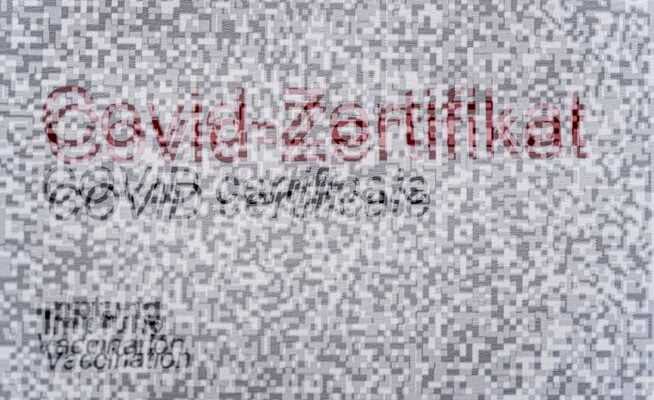Of course, the booster vaccination is important. But the credibility of politics is more important. The Federal Council’s handling of the certificate shows alarming callousness.
Even if the certificate will hopefully disappear from everyday life again soon, politicians should handle it carefully.
One cannot claim that the Federal Council gives those affected much time to think about it. Last Wednesday he decided to shorten the validity of the Covid certificate for vaccinated and recovered from 365 to 270 days. The change applies subito from January 31st. On this day, all certificates that were issued on May 6, 2021 or earlier will expire at once. After that, all certificates from May and June 2021 will gradually lose their validity in February and March.
The number of people affected is greater than one might think. In St. Gallen alone, around 40,000 certificates expire at the end of the month, nationwide there are likely to be hundreds of thousands. Anyone who belongs to this group and has booked a ski holiday, for example, now has a choice: get boosted quickly – or forgo going to restaurants.
Isn’t that all that wild, because the certificate will soon disappear from everyday life anyway? Hopefully. But that doesn’t make things any better. Just because the expiry date of the 3G or 2G regimes is foreseeable does not mean that the Federal Council can do as it pleases.
Why not separate rules at home and abroad?
Firstly, locking part of the population out of restaurants and other businesses represents a serious encroachment on fundamental rights. Secondly, it is quite conceivable that the federal government and cantons will again introduce compulsory certification in certain places next winter, even if nobody wants that. Thirdly, this means that decisions in this area must be justified with particular care.
But the Federal Council is far from that. His official explanation is flimsy: with the shortening, the certificate will continue to be recognized in the EU. Of course, it is important that Switzerland keeps an eye on EU rules and prevents problems with border traffic. However, this does not mean that the same regulations must apply domestically. If you can still go to the cinema in this country with certificates from February 2021, this will in no way make traveling to the EU more difficult.
In the consultation, several cantons had suggested sticking to the previous rules domestically. An implementation with differentiated deadlines for home use and for travel would be technically possible. Also last Wednesday, the Federal Council decided that the certificate for convalescents in Switzerland should be valid for 270 days, although the period for this G in the EU ends after 180 days. In addition, Switzerland issues short-term certificates based on antibody tests that are only valid in Switzerland.
The suspicion
Nevertheless, the Bundesrat left it at the reference to the EU and did not put forward any further arguments. Is that a trick? Does he want to encourage people to use boosters with the shortening? From the very beginning, there has been a suspicion that the certificate primarily serves to increase vaccination pressure. The authorities have always denied this. But with questionable justifications, their arguments don’t become any more convincing.
In terms of content, there are many question marks. The shortened validity is supported by the fact that the protection of the double vaccination decreases over time, but can be greatly improved with the booster. With regard to the hospitals, it is particularly important that the triple vaccination offers a high level of protection against severe courses. This is and remains the best argument for the certificate.
Doubts grow with Omikron
But is that enough? With the Omikron variant, the arguments against the G permit carry more weight. On the one hand, the virus is now less dangerous, and those infected need hospital care less often. On the other hand, Omikron is much more contagious than its predecessors. To put it bluntly: If you get infected on the train or while shopping just as easily as in the bar, there is no longer any reason to lock unprotected people out of the bar.
The acceptance of the certificate has always been precarious. With the Omikron variant, the doubts have grown. If the Federal Council decides to tighten the rules again with dishonest arguments, it shouldn’t be surprised if credibility continues to suffer.
